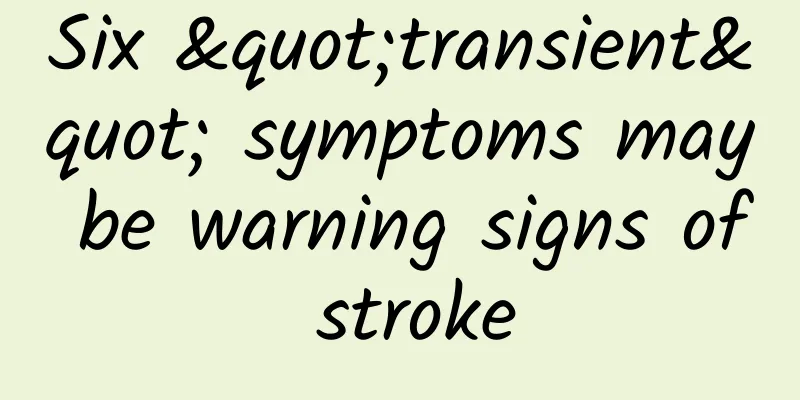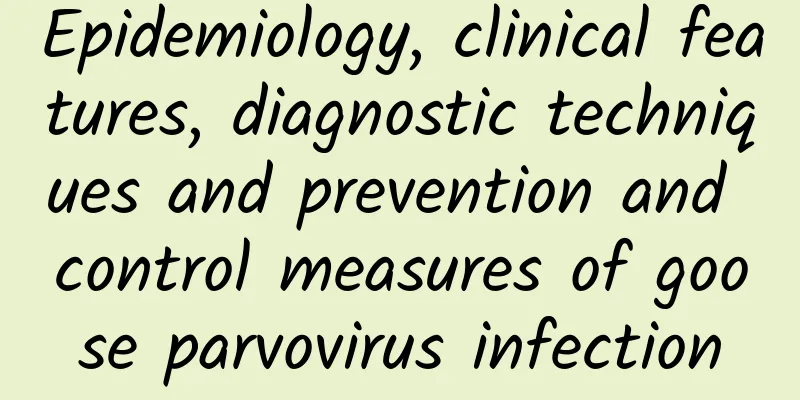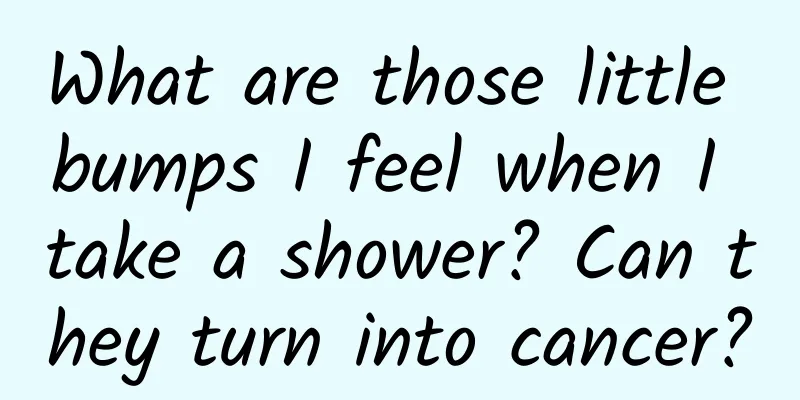Six "transient" symptoms may be warning signs of stroke

|
October 29, 2020 is the 15th "World Stroke Day". Stroke is the scientific name for cerebral infarction, a sudden onset of cerebral blood circulation disorder, also known as cerebrovascular accident. What are the danger signs of stroke? What are the common misunderstandings about stroke? How to prevent the occurrence of stroke? Today, Dr. Li Nannan and Dr. Wang Yao from the Department of Encephalopathy 1 of Beijing University of Chinese Medicine Oriental Hospital will talk to you about the understanding and prevention of stroke. Stroke | Danger signs of stroke Stroke, also known as "stroke" in traditional Chinese medicine, is a sudden onset of cerebral blood circulation disorder. It has the characteristics of "four highs" of high morbidity, high disability rate, high mortality rate and high recurrence rate. Therefore, in daily life, we need to understand its symptoms, especially the easily ignored precursors, so as to detect it in time and take corresponding measures in time. "Transient" symptoms Sometimes we don’t pay much attention to symptoms that “pass away in a flash,” but they may actually be warning signs of a stroke. Common transient symptoms include: Transient speech disfluency and slurred speech Transient numbness or weakness in a limb, especially on only one side of the body Transient mouth and tongue deviation Transient amnesia Transient blacking out of the eyes A transient decrease in consciousness or even coma Recurring dizziness Repeated vertigo is an important symptom of posterior circulation ischemia, which may be accompanied by a strong sense of rotation. Vertigo may be followed by decreased sense of balance, unstable standing, weak legs, dizziness, nausea, vomiting, and sweating. Headache Many people think that headaches may mean the occurrence of stroke, but in fact, the incidence of headaches during stroke is not high. Everyone should realize that the statement "I don't have a headache, so I don't have a stroke" is wrong. If one or more of the above symptoms occur: We should call 120 and wait for rescue immediately. Family members should try to help the patient lie flat, avoid emotional fluctuations, and monitor blood pressure and heart rate if conditions permit. If the patient vomits, family members need to help the patient lie on his side and clear the oral contents to prevent food, dentures, etc. from entering the trachea. Stroke | Common Misconceptions About Stroke Stroke, also known as "stroke", is a common disabling disease. However, the more familiar we are with it, the more likely we are to take it for granted. We may also miss the opportunity for diagnosis and treatment due to these misunderstandings. Below we summarize some common misunderstandings in the hope of raising everyone's awareness of stroke. Nothing to do with me Many young and middle-aged people think that stroke is an old age disease and has nothing to do with them. In fact, this concept is wrong. First of all, stroke is a disease that can occur in children, newborns and the elderly. The incidence of young stroke has increased year by year in the past decade. At present, it is considered that it may be related to the increase in risk factors such as high blood pressure, high blood lipids, smoking, and obesity in young patients. Carotid Screening = Stroke Screening Examination of carotid artery plaques includes stenosis and occlusion, which are closely related to atherosclerosis. However, carotid artery plaques are only one of the many risk factors for stroke. The absence of carotid artery problems does not mean that stroke will not occur. If the cerebrovascular examination is normal, you will not have cerebrovascular disease A normal cerebrovascular examination does not mean that there will be no cerebrovascular disease. For example, risk factors such as high blood pressure, metabolic problems, and smoking can also lead to stroke. Antiplatelet drugs can definitely prevent stroke Antiplatelet drugs are effective drugs for preventing stroke, but they are not a panacea. For some uncommon cerebrovascular diseases, such as cerebral amyloidosis, antiplatelet drugs cannot prevent stroke. You don't need to take medicine anymore after you recover from a stroke. Many patients think that they don’t need to take medicine anymore after recovering from a stroke, but in fact, stroke is a lifelong vascular disease. Although the acute phase has passed, vascular problems may still exist. Risk factors need to be managed well. Stroke | Prevention of Stroke Although the brain only accounts for 2-3% of the body's body weight, about 1/5 of the body's blood and 1/4 of the oxygen are used to nourish the brain. Therefore, if ischemia and hypoxia last for more than 3-5 minutes, it will cause serious brain dysfunction, cell death and even brain death. The brain cannot resist long-term ischemia and hypoxia, so we need to take some active measures before it happens. At present, we know that there are many risk factors for cerebrovascular disease, which can be divided into intervenable factors and non-intervenable factors. We usually need to increase our awareness of non-intervenable factors, and also actively intervene in intervenable factors. Modifiable risk factors for cerebrovascular disease Hypertension, hyperlipidemia, diabetes, atrial fibrillation, non-valvular heart disease, smoking, and drinking. Intervention targeting these risk factors can effectively prevent cerebrovascular disease. Disease intervention can seek medication or surgical treatment and other means. At the same time, quitting smoking and drinking can also help reduce the risk of stroke. Why are smokers more likely to have a stroke? Tobacco contains hundreds of harmful substances. Under the premise of excessive smoking or long-term smoking, these harmful substances will first cause damage to the vascular endothelium, promote platelet aggregation, cause arteriosclerosis, and cause thrombosis. Therefore, we recommend that smokers quit smoking as soon as possible. After quitting smoking for 5 years, the risk of stroke can be reduced to the level of non-smokers. Why drinking alcohol can cause stroke Studies have found that frequent consumption of high-concentration strong liquor can increase the incidence of stroke several times, because excessive drinking can increase cholesterol, promote atherosclerosis, and promote arteriosclerosis, while causing reactive changes in blood vessels and increasing the risk of stroke. |
>>: What does passion fruit taste like? Is passion fruit afraid of freezing?
Recommend
Low-lying placenta bleeding
If the placenta is low and bleeding occurs during...
What causes pain around the navel during early pregnancy?
Many women will experience great stress after bec...
What should I do if I have sex during my period?
The menstrual period is the most critical period ...
Is excessive pubic hair a hazard? But how much pubic hair is normal?
Excessive hair growth in women is often a sign of...
What should women eat to maintain their skin?
Female friends all hope that they can have very g...
What is the cause of maternal panic?
Excessive bleeding after giving birth may cause q...
When does ovulation occur during a 35-day menstrual cycle?
For women with regular menstruation, ovulation us...
What causes heart pain in women
A woman's heart pain may be caused by chest c...
What should pregnant women eat before giving birth to give birth quickly
Many pregnant friends, when approaching the deliv...
Understanding the spread of infectious diseases in one article
In the course of human evolution, infectious dise...
What equipment do you need for swimming? How can you learn to swim quickly?
Summer is here, it is a good time to swim. Why no...
How much bleeding does the hymen rupture?
The amount of bleeding caused by a ruptured hymen...
What to do if you have anemia during 5 months of pregnancy
Anemia is a common disease in life and has a part...









